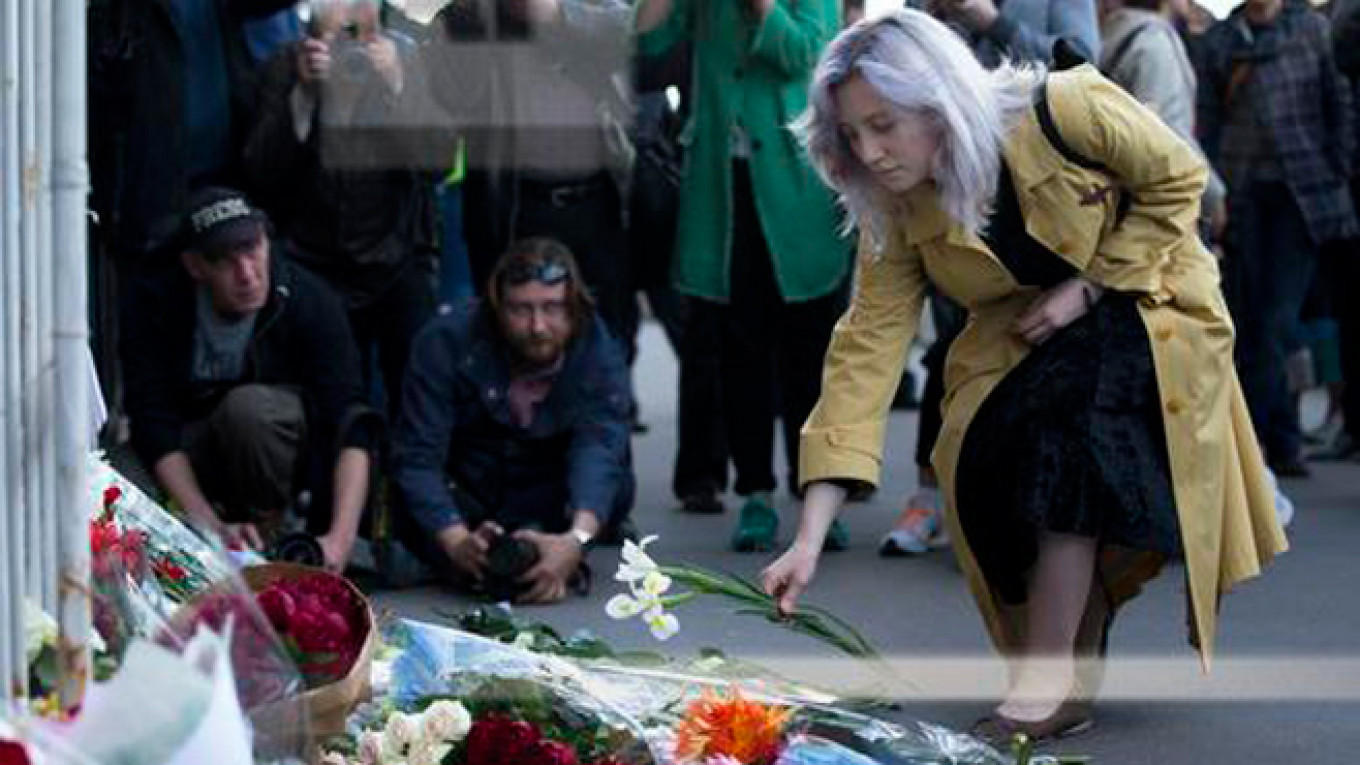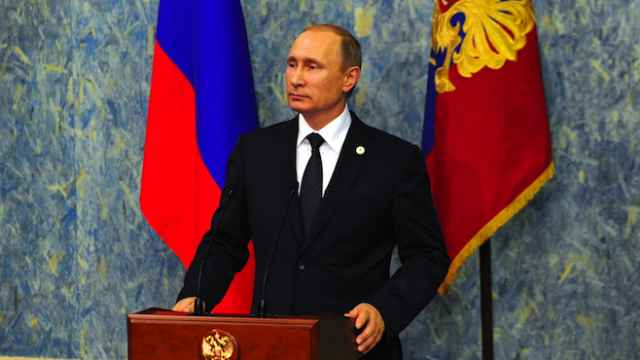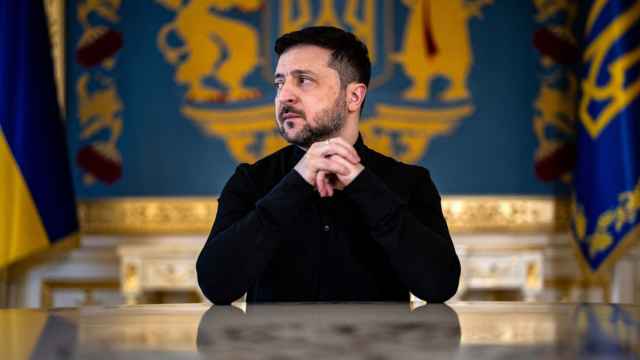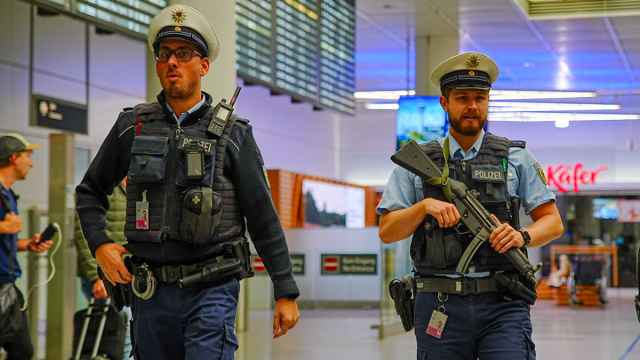A day after the deadliest shooting rampage in U.S. history, Felix Glyukman and his boyfriend went to the U.S. Embassy in Moscow. They were carrying with them a sign saying "Love Wins."
The gay couple had come to express their support for the 49 victims of a shooting at a gay night club in Orlando, Florida, on June 12. But the sign caught the police's attention and the couple was detained. When contacted by The Moscow Times, Glyukman was waiting to hear whether they would be taken to court for violating Russian protest laws.
"I'm still in shock at what happened," he said. "We just went there to express our sympathy with the victims and their relatives. It wasn't a political act."
The couple's arrest — and the subsequent removal of any LGBT symbols, such as rainbow flags, from the pile of flowers and letters at the embassy's gates — is yet another manifestation of Russia's infamously fraught relationship with its LGBT community.
Meanwhile, the Russian leadership was surprisingly forthright in its condemnation. Following the attack, the Kremlin announced President Vladimir Putin had offered his condolences and denounced the "barbaric crime" in a telegram sent to U.S. President Barack Obama.
Russian state media's coverage has been largely measured. It focused not as much on the club's gay clientele as on other aspects of the shooting, such as the gunman's self-proclaimed allegiance to Islamic State*, victims' stories and U.S. gun laws. At times, however, the pro-Kremlin media couldn't help itself and tried to score political points.
"If something like this had happened in Russia, the West would have instantly cried: 'Homophobia!'" Kremlin propagandist Dmitry Kiselyov said during his weekly roundup on state television. "But this attack on a gay club was in the U.S., and we just empathize."
According to political analyst Alexander Baunov, the attack provides a perfect opportunity for Russia to move toward normalizing relations with the West, with an eye on lifting sanctions in the future. Much like in the aftermath of 9/11, it will also help Russia push its agenda for an anti-terrorism coalition, he says.
But the Kremlin's conversion is skin deep. As, for example, when Foreign Ministry spokeswoman Maria Zakharova lashed out on Facebook against homophobic reactions to the Orlando shooting. She wrote that saying that the Orlando victims had deserved to die because of their sexual orientation was comparable to legitimizing the shooting of "children with developmental problems" or "an attack on a hospital." The words betray Zakharova shares the widespread Russian view of homosexuality as a disease.
On June 12, the day of the Orlando shooting, Ukraine's Kiev held a Gay Pride march. Largely uneventful and with full state backing, it was lauded as a sign of Ukraine's embracing of European values. Last month, the Moscow authorities turned down for the 11th year in a row a request to allow a similar parade in Moscow, citing the country's so-called gay propaganda law. The law makes it illegal to expose minors to anything that can be interpreted as celebrating LGBT people.
Gay rights activist Nikolai Alexeyev, who filed the application for the Moscow pride event, described the Kremlin's response to Orlando as "complete hypocrisy."
"[In Russia] the rights of LGBT people are constantly infringed, the number of violations is monstrous," he says.
With homophobic sentiment widespread in society, some fear Russia's relatively strict gun laws could yet be the best safeguard against a repeat of an Orlando scenario in Russia. "The United States is at the forefront of the fight for tolerance, and look what happened," says Glyukman. "Imagine if it were as easy to obtain a gun in Russia?"
Contact the author at [email protected]. Follow the author on Twitter at @EvaHartog
*Islamic State is a terrorist organization banned in Russia.A Message from The Moscow Times:
Dear readers,
We are facing unprecedented challenges. Russia's Prosecutor General's Office has designated The Moscow Times as an "undesirable" organization, criminalizing our work and putting our staff at risk of prosecution. This follows our earlier unjust labeling as a "foreign agent."
These actions are direct attempts to silence independent journalism in Russia. The authorities claim our work "discredits the decisions of the Russian leadership." We see things differently: we strive to provide accurate, unbiased reporting on Russia.
We, the journalists of The Moscow Times, refuse to be silenced. But to continue our work, we need your help.
Your support, no matter how small, makes a world of difference. If you can, please support us monthly starting from just $2. It's quick to set up, and every contribution makes a significant impact.
By supporting The Moscow Times, you're defending open, independent journalism in the face of repression. Thank you for standing with us.
Remind me later.






